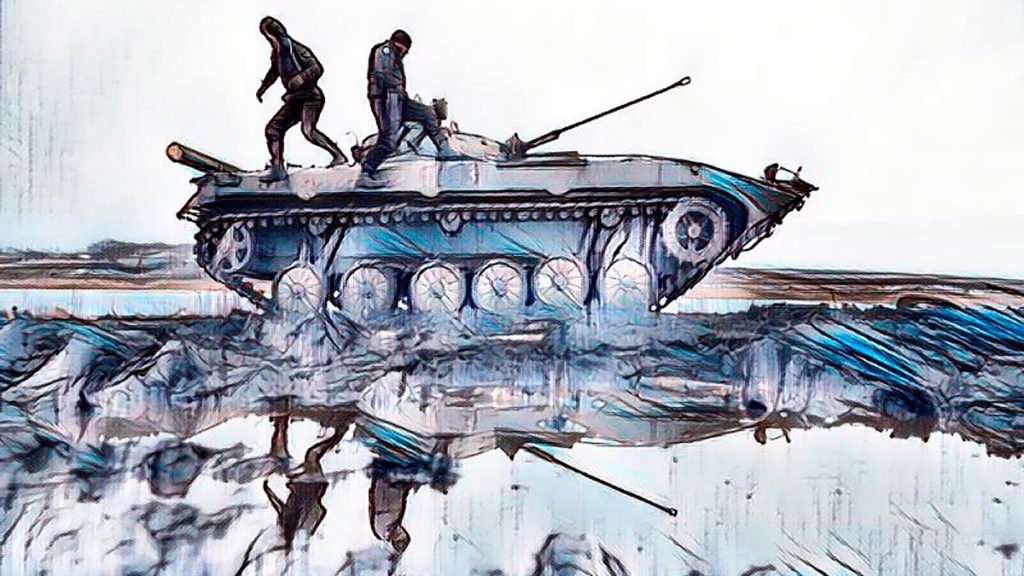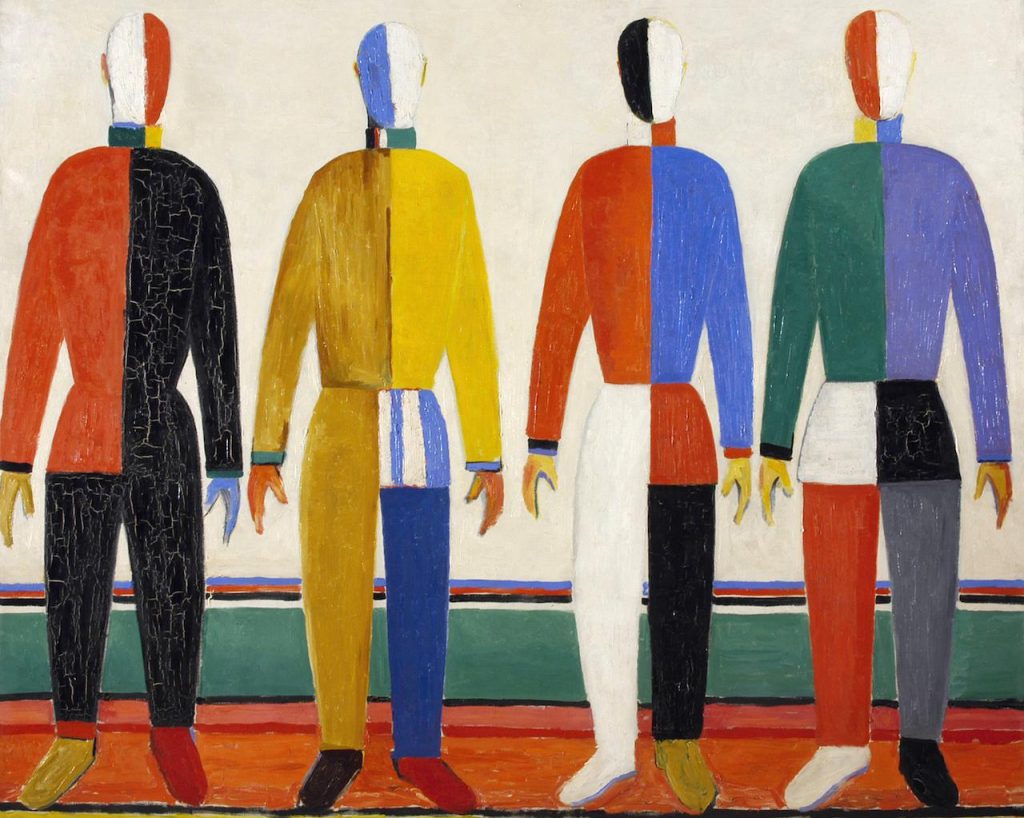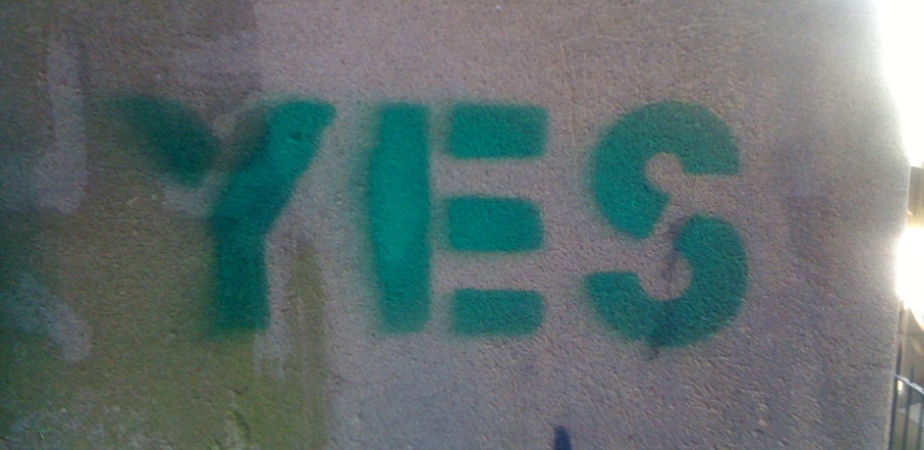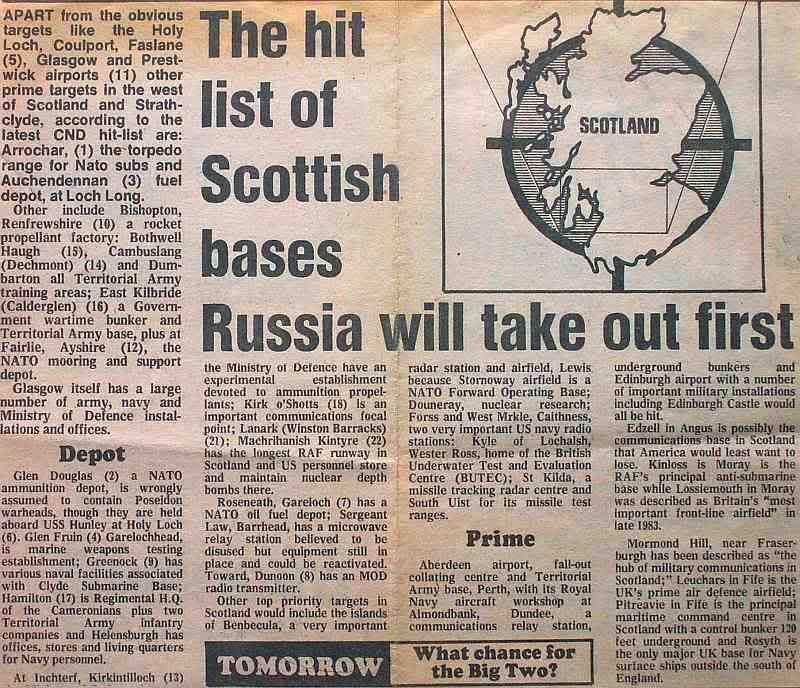In response to World War I, anti-militarist socialists gathered at the 1915 Zimmerwald Conference to build a new anti-war movement. The revolutionary wing raised the perspective of an independent, anti-imperialist path, one based on the slogan to wage a war against capitalism’s wars and crises.
Santiago Lupe March 22, 2022

Today, we are witnessing the formation of a warmongering “sacred union” to which most of the reformist Left has succumbed. Others adopt pacifist positions and express illusions about the diplomatic path. It is urgent to promote a pole of the internationalist Left that calls for a stop to the escalating war and for the independent anti-war mobilization of the working classes and peoples of Russia, Ukraine, and the imperialist countries.
The warmongering spirit continues to grow on the European continent. After Germany, the main European imperialist power, announced its historic rearmament, all the governments of the European Union closed ranks behind economic sanctions, the reinforcement of NATO contingents throughout the region, and sending arms to the Ukrainian army. It is the warlike barbarism of reactionary Russian nationalism that is mainly fueling this wave. Right-wing media and “progressivism” both embrace this resurgence of militarist European imperialism.
A large part of Europe’s reformist Left has dived into this vortex. Stalinist and populist groups are justifying the Russian aggression in Ukraine as a defensive action, given the advance of NATO and the EU over the past two decades. While these are marginal positions in Europe, they have a larger audience within the U.S. socialist Left and in Latin American populism.
In Europe, the vast majority of the reformist Left and “progressives” have lined up behind their own imperialist governments. They yield to the demagogic defense of Ukraine, which is a new version of the “sacred union” of “democratic Europe.” While there is not yet a generalized war beyond Ukraine on the immediate horizon, the situation is reminiscent of other dark moments in history — such as when the support of the reformist workers’ leaderships to the warmongering of their imperialist states led to the catastrophe of World War I.
From the betrayal of Social Democracy and the Second International in 1914, supporting the workers of the continent killing each other in that great imperialist war, an alternative Left emerged. The International Women’s Conference against War, organized by Clara Zetkin in March 1915, adopted the slogan “War on war!” That September, 38 delegates from 11 countries met at the Zimmerwald Conference.
The pacifist wing, headed by Martov, did not want to break with the Social Democratic parties and avoided a condemnation of the Second International’s betrayal. The revolutionary wing included Lenin, Trotsky, and Rosa Luxemburg. All agreed on promoting the independent and revolutionary mobilization of the masses to put an end to the imperialist war. Lenin openly proposed turning it into a civil war, understood as revolution. Trotsky and the German Spartacus League of Luxemburg and Liebknecht proposed raising it as a “revolutionary struggle for peace.”
Today, most of those who oppose warmongering do so from very different starting points from those at Zimmerwald, particularly those who were in the revolutionary wing. Their starting points are generally those of bourgeois or petty-bourgeois pacifism, which holds that peace can be achieved through diplomatic channels, and that the EU should play a greater role in negotiating the peace. This also characterizes figures such as Pablo Iglesias and Jean-Luc Mélenchon; sectors within Podemos and Die Linke;1 groups such as the EH-Bildu and CUP in the Spanish State, which speak politically for the Basque nationalist Left and the Catalan pro-independence Left, respectively; and far-left groups such as Anticapitalistas in the Spanish State.
That they oppose the warmongering is undoubtedly a progressive element. But these illusions in an EU of peoples, peace, and democracy in charge of their imperialist states come across as rather naive at a time when the rulers sound more and more like commanders-in-chief and when the head of EU diplomacy, Josep Borrel, has given up on all avenues of dialogue. In the case of Podemos, it is actual deception, since that party is part of the imperialist government of the Spanish Socialist Party, sharing four ministerial posts with the Communist Party.
Conversely, we cannot ignore that some of these proposals are put forward as alternative ways to strengthen Spanish imperialism and European imperialism in the world. Mélenchon is a faithful proponent of this perspective. He presents today’s option of nonbelligerence as the best defense of the interests of his own imperialism, and to differentiate it from U.S. imperialism. Iglesias shares this thesis; he has been lamenting for weeks that the EU does not have its own foreign policy.
The Zimmerwald Iglesias Wants …
Pablo Iglesias, since his podcast for the newspaper Público, has been raising this same historical analogy. He believes that there is a strong “social mood” in favor of warmongering. Against what he calls this “1914 momentum,” he appeals for a new “Zimmerwald momentum” — an opportunity to refound the European Left — for the second time in less than 10 years. Then, it was about reviving the old postwar Social Democracy; today, it’s about reviving the progressive pacifism of the beginning of the 20th century.
The Zimmerwald of this former deputy prime minister of the government of Europe’s fifth imperialist power, though, has nothing to do with the Zimmerwald of Lenin, Trotsky, or Luxemburg. What Iglesias hopes to impose, by means of a citizen pressure campaign on its rulers, is a reformist utopia with a return to diplomatic channels, a strengthening of the independent role of the EU, and a peace conference between the warring states.
It is a position that condemns Iglesias to the tragic impotence of reformists in times of crisis. It is the same approach he took during his time as part of the presidency, when he ended up taking on the bulk of the social-liberal and imperialist agenda of the Sánchez government. Now his hope is that the trend toward greater competition and armed and commercial clashes between powers — which are intrinsic to the capitalist system and have been worsening since the 2008 crisis — can be mollified without breaking or clashing with this social order. It’s a simple matter of good rulers acting rationally and for the common good.
The Zimmerwald Left made clear that the only way to stop the war was through working-class struggle against their own imperialist governments, not pleas for them to stop fighting and start negotiations. Only the perspective of socialist revolution, of the conquest of workers’ governments, was a realistic perspective to stop that machinery of death and open the way to a social model at the service of resolving the great, unresolved social and democratic problems.
World War I finally came to an end. A workers’ revolution triumphing in Russia for the first time in history was a fundamental component. Not only did it achieve peace in the East without any annexations, as was the will of the Bolsheviks, but it accelerated the end of hostilities of the other powers for fear that the revolution would spread throughout Europe — as happened even in defeated Hungary and Germany.
The peace negotiations between the imperialist powers were not exactly a guarantee of peace and democracy. They just postponed combat until two decades later. The fight for global hegemony remained unresolved, with the losers, beginning with Germany, condemned to paying reparations that fed the monster of reactionary nationalism. Such were the “achievements” of opening diplomatic channels between imperialist states and establishing the reactionary utopia of the League of Nations. What makes today’s peacemakers of diplomacy think things would be any different in the 21st century?
… And the Zimmerwald We Need
At the beginning of the 20th century, Lenin defined the fundamental characteristics of the time: crises, wars, and revolutions. This has been revived and updated, at least since the 2008 crisis.
As was the case in 1914 and in the 1930s, even the greatest apologists for capitalism recognize the tendency toward crises of all kinds — economic, climate, health — as a fact. So, too, is the growing tendency toward greater confrontations between states. Now we are witnessing a surge in this dynamic, with an armed conflict of unthinkable consequences and an economic war that could lead to the kind of disruption of the world market and logic of blocs that were seen in the years leading up to World War II.
What the various versions of reformist Left pacifism do not see, and do not want to happen, is that the current situation — the afflictions to which the capitalists and their states are condemning us — is inscribed with the possibility of new acute cycles of class struggle and even revolutions.
In the last decade, revolutionary outbreaks have been diverted or defeated. They include those triggered by the “Arab Spring,” the revolts beginning in 2019 in a number of Latin American countries, and the big workers’ strikes against Macron in France. Even the International Monetary Fund — despite being responsible itself — warned of the danger that the situation left in the wake of the pandemic could be the breeding ground for a world full of revolts.
That is the perspective toward which we must direct our efforts to stop the current war and the escalation of warmongering that has ensued. Let the intervention of the masses, the class struggle, the revolts, lead to triumphant revolutions that will put an end to a social order that is incapable of guaranteeing humanity’s survival in the coming decades.
At this moment, a 21st-century Zimmerwald Left should, first and foremost, propose a way out that is independent of the various reactionary sides in the Ukrainian war. Neither Putin’s autocratic government nor the pro-imperialist government of Zelenskyy and the various reactionary nationalist forces, subordinated to the NATO powers, can provide a progressive and lasting solution to the underlying problems behind this geopolitical and military crisis.
In Ukraine itself, such a Left would mount a resistance to the Russian occupation not subordinated to NATO and the EU, as Zelenskyy champions, but based on the development of workers’ and popular self-organization and that opposes Russophobia and recognizes full rights, including self-determination, for the territories with Russian-speaking majorities. In Russia, it would struggle to develop a great workers’ and popular mobilization to stop the war machine and in defense of the independence of Ukraine — and which would be the starting point to put an end to Putin’s reactionary regime in a revolutionary way.
At the same time, such a Left would push for a strong movement against the war in the imperialist countries, a Left that stands for Russian troops out of Ukraine; for the right to asylum for all Ukrainian and Russian refugees fleeing Putin’s persecution or deserting the military mobilization; for the lifting of the economic sanctions; for a halt to all intervention and the withdrawal of all troops, including sending troops and weapons to the region; and against the escalating rearmament of the European armies.
The capitalists lead us to wars and great economic suffering that flows from their wars and crises. We must build a Left that raises the banner of “War on war!” We must build a Left that stands up for the fraternal and international struggle of the different peoples and the working class against the imperialist governments to stop this escalation and impose a program to make the capitalists themselves pay for its consequences, with measures such as nationalizing the entire energy sector under workers’ control and a sliding scale of wages linked to price increases.
Let us raise the banners of Zimmerwald’s revolutionary wing once again: the fight for a socialist perspective and to establish workers’ governments that will put an end to a social system that only leads us to barbarism.
First published in Spanish on March 6 in Contrapunto, the Sunday supplement of Izquierda Diario in the Spanish State.
Translation by Scott Cooper






